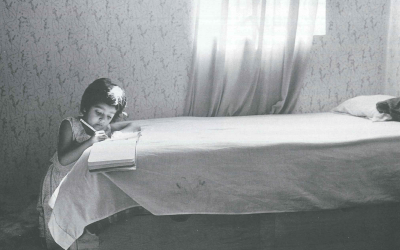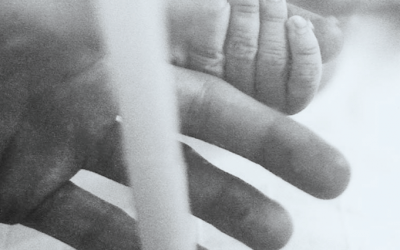Democracy in Latin America: Successes and Challenges
With the exception of Fidel Castro’s Cuba, the Western Hemisphere is now exclusively ruled by democratically elected leaders. Democracy has come a long way in Latin America and we can draw encouragement from the region’s historic rejection of military dictatorships and bloody civil conflicts (although the one in Colombia continues unabated). Yet, for all of the steps in the right direction, democracy in Latin America still faces many challenges.
Although I am a firm believer in free trade, and hope to see the Free Trade Area of the Americas come into being as scheduled in 2005, I find it disconcerting that economic issues seem to have completely eclipsed discussions of how to strengthen and consolidate democracy and human development in Latin America. Much remains to be done in these areas, and if neglected, problems of poverty and poor governance will certainly come to overshadow any success we have in raising rates of economic growth.
Another challenge for democracy and well-being in Latin America is the legacy of our military history. In Central America, peace agreements have been signed and democratic institutions put in place in the countries that were torn by war in the 1970s and 80s. However, the weapons from those wars have remained in the hands of soldiers and rebels, or have been sold on the street, contributing to atrocious levels of violent crime. Many Central Americans fear more for their safety today than they did during the years of the war.
These problems do not only exist in Central America. Many of the democratically elected governments of South America still do not have their militaries sufficiently subordinated to civilian authority, and we have seen threats and rebellious behavior on the part of a few Latin American militaries that would be unacceptable in mature democracies. One example is the pressure that was put on Chilean president Ricardo Lagos to spend an enormous amount of money on sophisticated fighter jets to “modernize” his country’s air force. As long as military chiefs continue to hold undue power within their governments, spending priorities will be out of step with the needs of the people, and democracy will remain threatened by the Damoclean sword of a potential coup d’état.
A further obstacle to democracy is Latin America’s ignoble distinction of having greater economic and social inequality than any other region in the world. First of all, wealthy Latin Americans are not doing their part. While European countries such as Sweden and France collect more than 45% of their gross domestic product in taxes, Guatemala collects no more than 9%. Furthermore, many countries went too far in fiscal reform programs during the 1980s and 90s, slashing not only wasteful public spending, but essential spending on health and education as well. Without these basic building blocks, it will be impossible to ensure that the benefits of economic growth are widely shared in our societies.
The world has often observed very high voter turnouts in countries that have recently struggled for, and finally won, democracy, while voter turnout and enthusiasm seems to decline as democracy becomes more established. Sadly, in Latin America, we are seeing rapid losses of confidence in even new and hard-won democracies. Opinion polls show that many voters believe elections offer a choice between two evils, and that political leaders are generally corrupt. In fact, corruption has been, and continues to be, a disastrous force in our democracies, chasing away both foreign and domestic investment, and, perhaps more ominously, the people’s trust in democracy as a valid form of government. At the same time, a lack of democratic tradition shows itself in the strong-arming and legislative standoffs that often keep our governments from producing results. If democratic governments do not provide for the basic human needs of their people, and promote the stability and well-being of their societies, we will all pay the price when those democracies are forcefully rejected in favor of new incarnations of the old totalitarian regimes of both right and left. Their seeds still lie dormant in Latin American soil, and await only the irrigation of widespread discontent with today’s elected governments.
Fortunately, not all of the news is bad. A nascent movement of civil society organizations that clamor for transparency and accountability from their governments is beginning to have an effect. A relatively free press and global flows of information are having a positive impact on our social conscience. While judicial systems are still a mixed bag, the “bad apples” are finding it more difficult to intimidate those judges committed to upholding the law. The recognition of human rights is gradually becoming more widespread, and some of the more heinous crimes of our inglorious past are being brought to justice. Leaders who confuse immunity with impunity are increasingly being held accountable, although there still remains much to be done in this area.
In the end, our greatest hope lies in the education of our children, to whom we owe the future. If we are able to get our priorities straight and invest heavily in them today, our children will show us the way to the strong, open, and prosperous societies for which we all hope, not only in Latin America, but around the world.
Fall 2002
Dr. Óscar Arias, former President of Costa Rica and 1987 Nobel Peace Laureate, holds international stature as a spokesperson for the developing world.
Related Articles
Editor’s Letter: Democracy
Ellen Schneider’s description of Sandinista leader Daniel Ortega in her provocative article on Nicaraguan democracy sent me scurrying to my oversized scrapbooks of newspaper articles. I wanted to show her that rather than being perceived as a caudillo
Battro Named to Pontifical Academy
Antonio M. Battro M.D., Ph.D. has been named to The Pontifical Academy of Sciences, the oldest science academy in the world, established by Galileo 400 years ago. Battro, Robert F. Kennedy…
Entre los panales y el poder
Cuando Jacqueline van Rysselberghe fue informada en Noviembre último que ella debería dejar su puesto como alcaldesa de Concepción, una de las ciudades mas grandes e…




